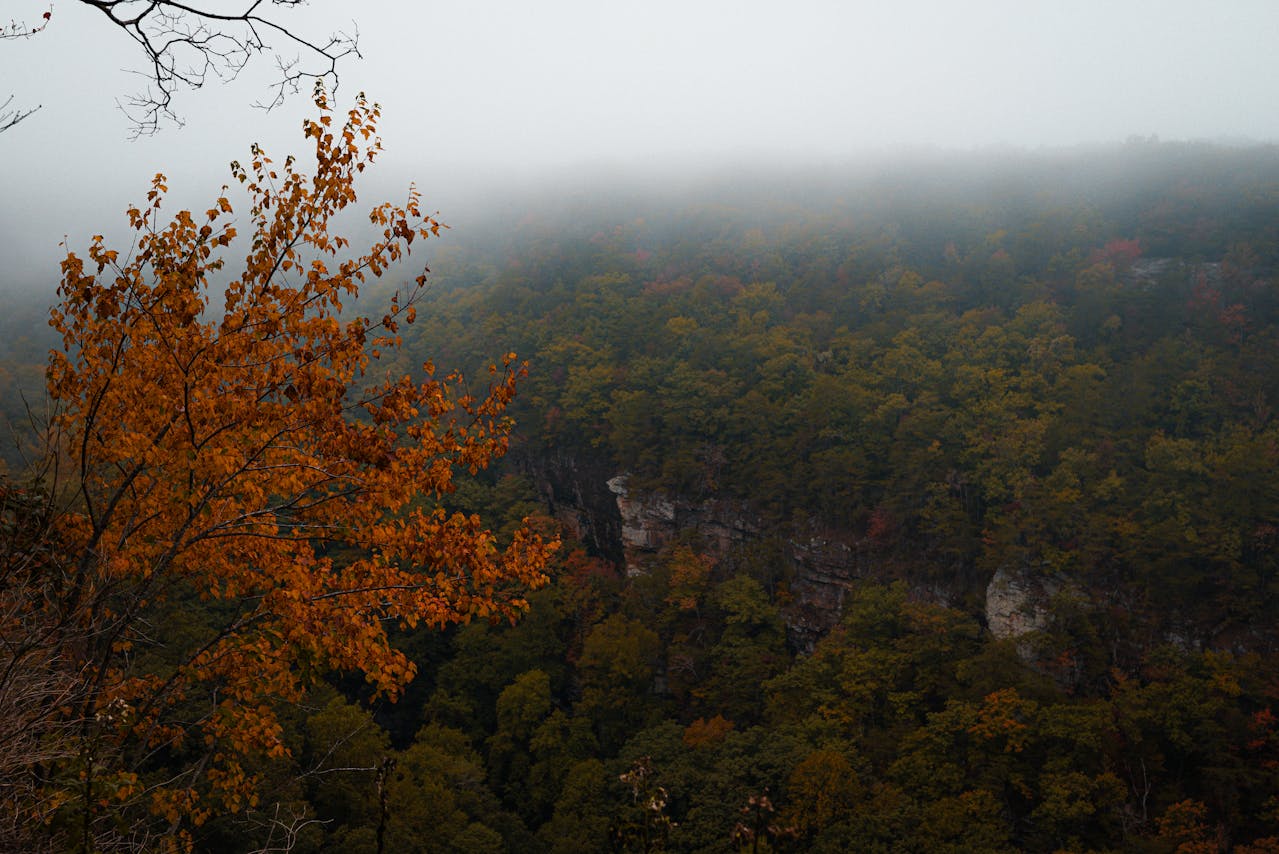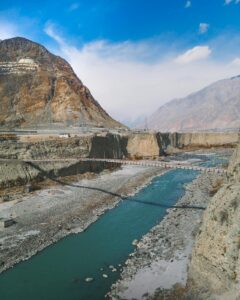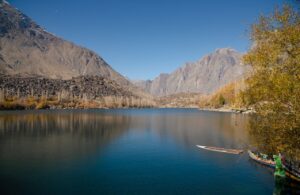Introduction
If you’re curious about how to reduce plastic waste while traveling in Pakistan, you’re not alone. The rise in eco-tourism has brought attention to the growing issue of plastic pollution, especially in Pakistan’s stunning natural landscapes. Many of these areas, like the northern regions and coastal areas, are particularly vulnerable to plastic waste. The good news is that with a few mindful changes, you can significantly reduce your plastic footprint. In this guide, we’ll explore practical tips to help you minimize plastic waste during your travels. From switching to reusable water bottles to choosing eco-friendly accommodations, there are plenty of simple steps you can take. By adopting these habits, you can enjoy the beauty of Pakistan while preserving it for future generations. Let’s dive into how you can make your trip more sustainable!
Table of Contents
The Environmental Impact of Plastic Waste in Pakistan
Plastic waste poses several environmental challenges, from harming wildlife to ruining scenic beauty. In Pakistan, these issues are particularly prominent in tourist areas where waste management infrastructure may be inadequate.
Long-Term Environmental Damage
Plastic is a non-biodegradable material, meaning it takes hundreds of years to break down. As a result, plastic waste accumulates in the environment, posing a long-term threat to ecosystems. In Pakistan’s northern regions—such as the valleys of Hunza, Swat, and Gilgit—plastic waste accumulates along hiking trails, rivers, and mountain streams. These areas are incredibly sensitive to pollution, as many of them have limited waste disposal facilities, making it difficult for plastic waste to be collected and properly disposed of.
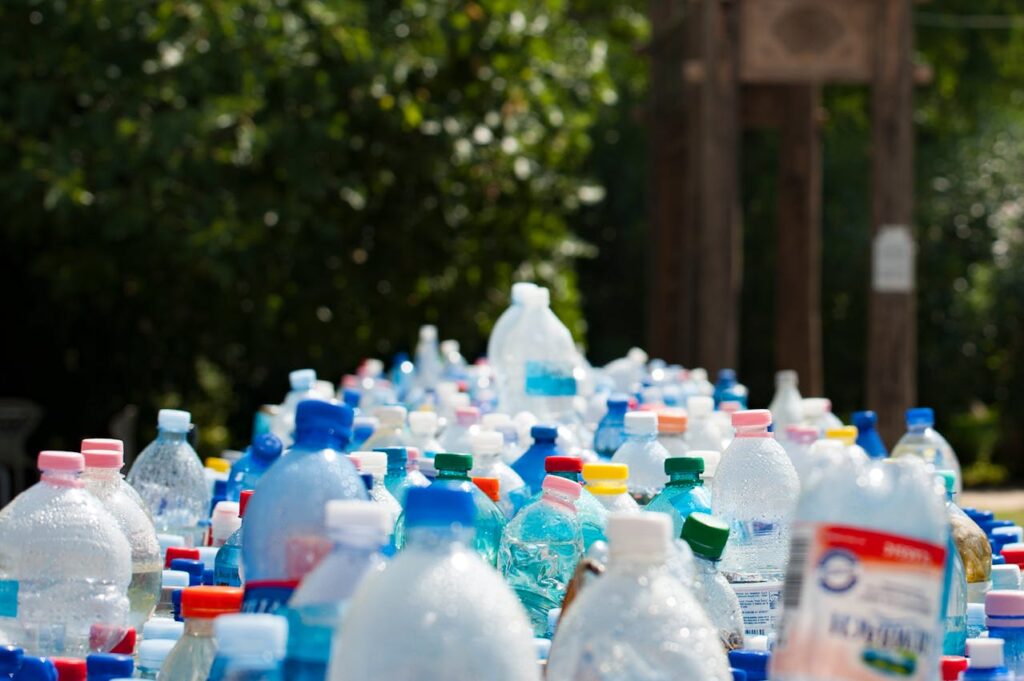
The accumulation of plastic waste in these scenic regions not only disrupts the local ecosystem but also impacts the tourism industry. Tourists come to these areas for their natural beauty and serenity. However, the presence of plastic pollution detracts from the experience, making the environment less appealing to visitors.
Harm to Wildlife
Plastic pollution is one of the leading causes of death and injury for wildlife worldwide. In Pakistan, animals both on land and in water are at risk. In rivers and coastal areas, wildlife such as turtles, fish, and birds are often found ingesting plastic waste, mistaking it for food. This ingestion can lead to suffocation, digestive problems, and even death.
In addition to ingestion, animals can become entangled in plastic waste, causing physical harm or restricting their movement. For example, in coastal areas like Karachi and Gwadar, marine life suffers from the accumulation of plastic bags and packaging, which disrupts their natural behaviors and endangers entire species.
Impact on Scenic Beauty and Tourism
Pakistan’s natural landscapes are a major draw for tourists. From the towering peaks of the Karakoram Range to the serene beauty of the beaches in Balochistan, the country’s unspoiled nature is one of its greatest assets. However, plastic waste can significantly detract from the visual appeal of these areas. Whether you’re hiking through lush valleys or relaxing on sandy beaches, encountering plastic waste can ruin the experience. Moreover, travelers may be less likely to return to a destination that is polluted by plastic waste, leading to a decline in local tourism.

Simple Ways to Reduce Plastic Waste While Traveling in Pakistan
While the challenge of plastic pollution may seem overwhelming, there are several simple and effective steps travelers can take to reduce their plastic waste while traveling in Pakistan. By adopting more sustainable practices, travelers can contribute to the preservation of the environment.
1. Bring a Reusable Water Bottle
Single-use plastic bottles are one of the biggest contributors to plastic waste in tourism. Instead of purchasing bottled water throughout your trip, bring a reusable water bottle. This not only reduces your reliance on single-use plastics but also ensures you stay hydrated throughout your travels. Many restaurants, cafes, and hotels are more than willing to refill your bottle for free. In some places, refill stations are even available for tourists, reducing the need for bottled water.
In Pakistan, water quality varies across regions, and while it may not always be safe to drink tap water in some areas, using a refillable water bottle with a built-in filter can provide a practical solution. These filtered bottles allow you to safely drink tap water, avoiding plastic bottle consumption altogether.
2. Avoid Single-Use Plastic Bags
Plastic bags are another major contributor to plastic pollution. They are commonly used for shopping, packaging food, and carrying essentials. Unfortunately, plastic bags are often discarded after a single use and can take hundreds of years to break down. To minimize plastic waste, carry your own reusable shopping bags made of fabric or jute. Many markets in Pakistan, especially in urban centers like Lahore, Karachi, and Islamabad, encourage customers to bring their own bags. This small change in behavior can significantly reduce the volume of plastic bags that end up in landfills or natural environments.
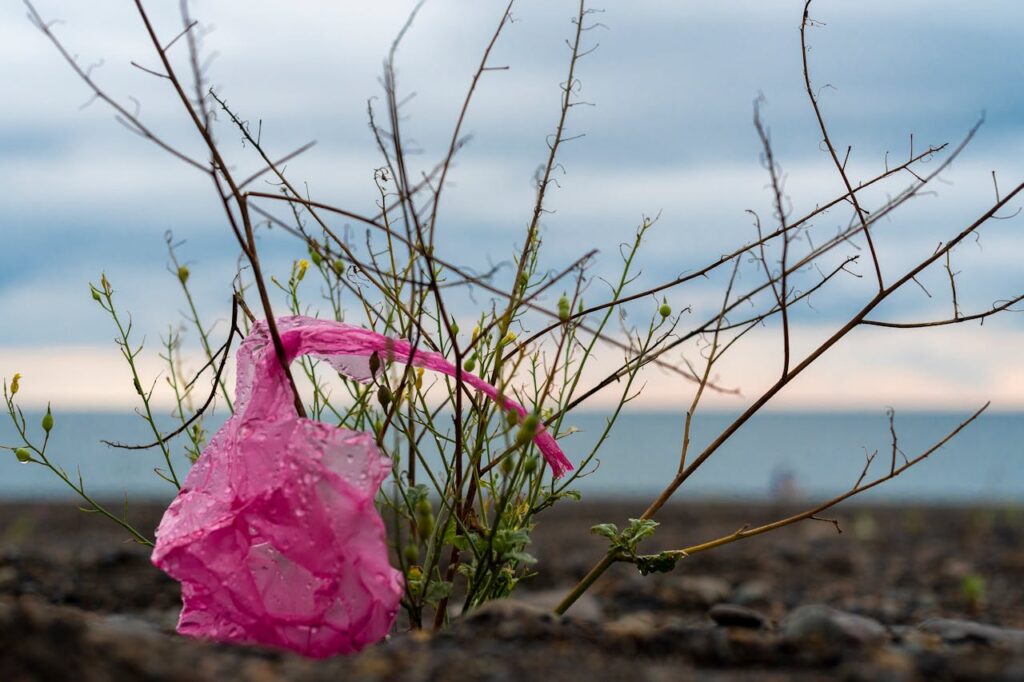
3. Choose Eco-Friendly Travel Essentials
Many common travel essentials, such as toiletries and cleaning products, come in plastic packaging. When possible, choose eco-friendly alternatives such as bamboo toothbrushes, shampoo bars, and soap bars. These products are typically plastic-free or come in recyclable or biodegradable packaging, reducing your overall plastic consumption. Additionally, using refillable containers for liquids like shampoo, lotion, and sunscreen can further minimize your plastic footprint.
Before your trip, research brands that emphasize sustainability and eco-friendly packaging. Consider purchasing these items before you depart to ensure that your travel essentials align with your eco-conscious values.
Eco-Friendly Accommodation and Dining Options
In addition to individual choices, travelers can also support eco-friendly accommodations and dining establishments that prioritize sustainability.
1. Stay at Eco-Friendly Hotels or Guesthouses
An increasing number of hotels and guesthouses in Pakistan are taking steps to reduce their environmental impact. Eco-friendly accommodations typically minimize the use of plastic by offering glass bottles instead of plastic ones, providing bulk toiletries to avoid single-use plastic containers, and encouraging guests to minimize waste. These establishments may also adopt other sustainable practices, such as using renewable energy, conserving water, and implementing waste recycling programs.
When planning your stay, look for hotels or guesthouses that actively promote sustainability. Several online platforms, including Booking.com and Airbnb, allow you to filter your search results to find eco-conscious properties.
2. Choose Sustainable Dining Options
Pakistan is known for its rich culinary culture, but much of the food packaging in restaurants and street food stalls contributes to plastic waste. To reduce this impact, opt for dining establishments that avoid using plastic cutlery, cups, and packaging. Some restaurants in larger cities have begun to offer biodegradable or reusable alternatives to plastic items.
For those traveling through more remote areas, packing your own reusable cutlery and containers can help reduce the need for disposable plastic items while eating on the go. Supporting restaurants that prioritize sustainability also encourages the growth of eco-friendly businesses in the region.
Explore Pakistan’s Nature Without the Plastic Waste
Pakistan offers some of the most breathtaking natural landscapes in the world. From trekking in the Himalayan foothills to relaxing on the beaches of Balochistan, there are endless opportunities to explore the outdoors. However, protecting these spaces from plastic pollution is vital to maintaining their beauty.
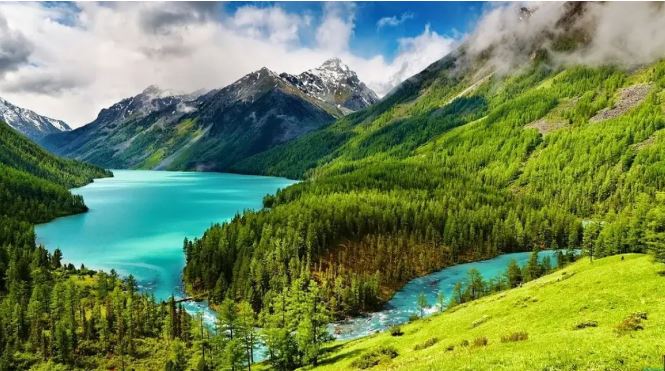
1. Follow the Leave No Trace Principle
The Leave No Trace (LNT) principle encourages travelers to leave natural spaces exactly as they found them, without leaving behind any waste. In remote areas, particularly in the northern regions of Pakistan, waste disposal infrastructure is often lacking. As a result, it is essential to pack out everything you bring in, including food wrappers, plastic packaging, and waste from personal items. By adhering to this principle, travelers can minimize their environmental impact and help preserve the natural beauty of the area for future visitors.
When hiking or trekking in Pakistan’s remote regions, make sure to bring a small, portable trash bag to collect any waste you produce throughout the day. This ensures that you dispose of it responsibly once you have access to proper waste disposal facilities.
2. Use Reusable Travel Gear
For those exploring the outdoors, choosing reusable, eco-friendly travel gear is essential for reducing plastic waste. Items such as collapsible cups, reusable food containers, and biodegradable soap can help minimize the need for single-use plastics. Additionally, using a good-quality thermos or travel mug will eliminate the need for disposable cups when stopping at cafes or roadside stalls. By using these eco-friendly alternatives, travelers can reduce the amount of plastic waste generated during their trips.
Support Local Initiatives for Plastic Waste Reduction
Travelers can also support local efforts to reduce plastic waste by participating in community-led initiatives and supporting businesses that adopt sustainable practices.
1. Participate in Local Clean-Up Events
In popular tourist areas, local communities often organize clean-up events to remove plastic waste from the environment. Participating in these events not only helps improve the cleanliness of the area but also raises awareness about the issue of plastic pollution. Travelers can inquire about scheduled clean-up events through local tourism offices or environmental organizations.
2. Support Eco-Friendly Businesses
In Pakistan, many businesses are adopting eco-friendly practices to reduce plastic waste. By supporting these businesses, whether it’s a local shop that sells sustainable products or a hotel that implements green practices, travelers can contribute to the growing movement towards sustainability. These businesses help promote eco-friendly tourism while supporting local communities and economies.
Conclusion: Travel Responsibly and Make a Difference
Plastic waste is a significant challenge for Pakistan’s tourism industry, but by adopting eco-friendly practices, travelers can play a crucial role in reducing their environmental footprint. Whether it’s by using reusable water bottles, avoiding single-use plastics, or supporting sustainable businesses, small changes in behavior can have a big impact on preserving the beauty of Pakistan’s natural landscapes.
By being a responsible traveler, you not only help protect the environment but also set an example for others to follow. Every traveler has the power to make a difference, and together, we can ensure that Pakistan’s natural beauty remains unspoiled for generations to come.
FAQ
Question1. Is tap water safe to drink in Pakistan?
Answer. Tap water is not typically safe to drink. Use a reusable water bottle with a filter for safe hydration.
Question2. Are there eco-friendly accommodations in Pakistan?
Answer. Yes, many tourist destinations offer eco-friendly accommodations that reduce plastic use and promote sustainability.
Question3. How can I help reduce plastic waste in Pakistan?
Answer. Support local clean-up efforts and eco-friendly businesses that focus on sustainability and waste reduction.

